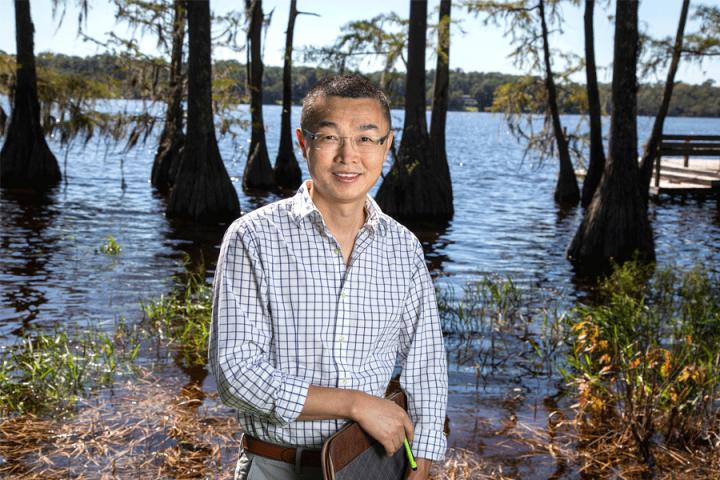
Credit: Mark Wallheiser/FAMU-FSU College of Engineering
New research from the FAMU-FSU College of Engineering combines climate and land use projections to predict water availability, information that is crucial for the preparations of resource managers and land-use planners.
“This research presented a new method that can be used to generate future climate data for the existing hydrological models,” said Gang Chen, a professor of civil and environmental engineering at the college. “With the integration of more reliable future climate data, the existing hydrological models can more accurately project future water scenarios in the face of climate change.”
Chen is leading a team of experts to produce new data techniques to improve hydrological modeling that is essential for water resource management planning. Their work was published in WATER.
The researchers used their method to examine the hydrological processes in Alabama’s Upper Choctawhatchee River Watershed, which eventually flows into Florida and empties into the Choctawhatchee Bay. They integrated land use projections with future climate data to study the combined effects on the hydrological response of the watershed.
“Using water balance simulations, we discovered that surface runoff and evapotranspiration are dominant pathways for water loss in the Southeast,” Chen said.
Yashar Makhtoumi, a doctoral candidate in the Department of Civil and Environmental Engineering, is working with Chen on new data downscaling techniques. The innovative process provides more data and improves modeling outcomes.
“Few research projects have been done to investigate the combined effects of land use change and climate change using projections,” Makhtoumi said.
The results of the study showed the effects on water resource variables were seasonal. Surface runoff caused the most significant changes in various simulations, and evapotranspiration was also an issue, though to a lesser degree. The models indicate that by midcentury, more frequent extremes in water balance are projected to be an issue.
Although the research focuses on a single watershed, the researchers believe their work could be applicable on a wider scale. That’s important for a state like Florida, where population growth, development and climate change are forcing residents and planners to realize the limitations of the state’s water supply.
“Our model demonstrated that it could capture hydrologic parameters accurately and could be used for future studies of water quality,” Chen said. “It can provide the necessary data to determine sustainable conservation practices needed now and in the future, and help manage and protect our water resources.”
###
Researchers from Florida A&M University and California State Polytechnic University Pomona contributed to this work.
The research was supported by a $1.2 million grant from the National Institute of Food and Agriculture of the U.S. Department of Agriculture through Florida A&M University.
Media Contact
Trisha Radulovich
[email protected]
Original Source
https:/
Related Journal Article
http://dx.




